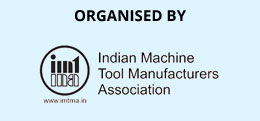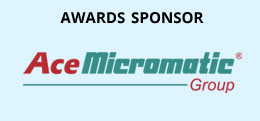Bharat Heavy Electricals Ltd., Thirumayam
Quantum leap in productivity in gas cutting with edge preparation of Pipes up to 1400 mm dia. and 10 meter long
BHEL produces fabrication of heavy duty pipes, and their manufacturing process involves Gas / Flame cutting of large pipes followed by edge preparation for welding. The pipes range from 100mm-1400mm diameter, 6-10m length and 5-100mm thickness, and weigh between 3-10 tons. Gas cutting and Edge preparation was hitherto being done by turning the pipes manually with crow bars while operating on one quarter of the circumference in each setup. A Rotator based positioner has been implemented for continuously rotating the pipes, so as to improve productivity, safety and ergonomics.
Brakes India, Chennai
Innovation in Plating process change leads not just to productivity improvement but also step forward in the Industry 4.0 implementation
Brakes India were facing major quality issues due to black dots on plated parts, leading to rejections and customer complaints. They addressed the problem by changing the Zinc Barrel Plating process from acidic process to alkaline process. A major project was undertaken to modify the Zinc Plating Line, with specific efforts to crunch the process cycle time. They could achieve the quality target, improve productivity by 20%, avoid significant Capex incurrence, and implemented bar code traceability in line with I4.0
Dynamatic-Oldland Aerospace, Bangalore
300% ramp up of helicopter kits and that too in a short time!
Dynamatic-Oldland Aerospace supplies kits of some fabricated structural parts for BELL 407 Helicopters. They had to gear up for a spurt in volumes from BELL and increase capacity from 3 helicopter kits per month to 9 kits per month at short notice. Their approach was advance planning, push for aggressive resources & inventory management, use of Auto-nesting for optimizing and speeding up cutting of parts, and implementing a number of administrative best practices. Not only did they smoothly ramp up production, but also improved their operational performance and work culture.
Faiveley Transport Rail Technologies India, Hosur
Capacity doubling and significant cost savings through Lean MOST methodology
Faiveley Transport Rail Technologies are the sole supplier of E70 brake panels for Indian Railways. In order to address increase in demand, they were required to improve their process. After systematic process of VSM (Value Stream Mapping) and application of MOST (Maynard Operation Sequence testing) techniques, a number of improvements were done in the bottleneck area. This included elimination of non-value adding activities, layout changes and work-cell optimization, automation in testing of panels and nut runner improvement. With these improvements, they were able to double their capacity and realise significant cost savings.
Hero MotoCorp, Neemrana
Low Cost Automation and JIT, the magic wand, for a significant enhancement of productivity
Cylinder kit line at Hero MotoCorp’s facility at Neemrana produces kits of loose parts for two wheeler engine cylinders. Owing to increase in demand, they were required to increase the production rate from 8 kits / minute to 14 kits / minute. They have implemented Low Cost Automation through addition of conveyors in line with JIT principles. They have also implemented modernization by replacing conventional label sticking on product, with automated laser engraving on the fly. Apart from increasing the rate of production, they could also reduce manpower and realised savings through the improvements.
Indo MIM, Bangalore
Automation & Robotics, a case study on reducing manual intervention to boost productivity in MIM (Metal Injection Molding) parts
The performance of metal injection molding was suffering on account of sluggish process, higher dependence on manual work, low productivity and consistency. Indo MIM have undertaken a drive to implement slew of improvement measures such as use of tools with additional cavities, automation in thread unwinding, use of Robots for material handling between machines, automation in de-gating operation and I4.0 based on line productivity monitoring. With this, they could achieve about 30% increase in throughput per machine, and 45% increase in throughput per operative.
Mahindra & Mahindra, Automotive Division, Mumbai
Foundry productivity, Profit and sustainability improvement through innovative yet frugal solutions in core making
In line with Mahindra & Mahindra Group’s commitment towards adopting Green manufacturing and reducing Carbon footprint in their oldest plant, they identified captive foundry, and within the foundry, the Core shop as the priority areas. Two varieties of Cores were merged into one type for optimization of lines and handling. To reduce handling of hot core and improve productivity, they have implemented automation and added pneumatic sand transfer system. This resulted in improving productivity of Core shop by 110%, improving production capacity of Crankcase castings by 50%, in addition to achieving aggressive environmental results. They have also achieved I4.0 compatibility for energy monitoring.
Tata Hitachi Construction Machinery, Kharagpur
Using latest cermet hobs to boost productivity in gear cutting
Tata Hitachi Construction Machinery manufactures Transmission devices and Gears for their products, in-house. They had to scale up volumes by 50%, for which they considered options of achieving this with minimal Capex. The original process of gear manufacturing was roughing by hobbing. They have changed the process where directly Finish machining is done by Cermet hobbing, followed by heat treatment. They could achieve the required capacity for much lesser Capex and have verified gear quality with the new process.
TVS Motor Company, Hosur
Cobots on the fly inspection; a case study of I4.0 implementation for quality
TVS Motor Company was faced with a pressing need to improve quality appeal, coupled with capacity rise. Final inspection was identified as a vital area for improvement. They implemented AI backed, automated, Cobot maneuvered, Digital camera based “in-line” 100% inspection from Left Hand (LH) and Right Hand (RH) sides of two wheeler assembly line. Thus their capacity increased from 1000 products / shift to 1800 products / shift, with much better assurance of quality and being able to stop the line at first appearance of any major defect. It is an example of I4.0 implementation for quality.
Yuken India Limited, Kolar
Reengineering of Chip compacting machine to improve productivity, reduce lead time and better chip handling capacity
Yuken manufactures Chip Compacting machines to help machine shops in user industries to improve Productivity in chip handling and to enable better realization of scrap value. The Chip Compacting machine has been extensively reengineered for better productivity and operational performance, both for themselves as well as to offer better value proposition to their customers. The principle benefits were reduction in Die change time and power saving for their customers, and reduction of throughput time, inventory and import substitution for Yuken.
Adler Medieqip Pvt Ltd-Ratnagiri
Low Cost Automation in Rasp teeth punching process
Adler Medieqip manufacture medical implants. When an implant is placed in Femoral hip joint to provide support to the largest load bearing bone in the thigh, the cavity needs to be filed / rasped to match the shape of implant. This is done with a Trial Rasping tool, with teeth punched on its surface for abrasive action. Teeth were being manually punched on this tool which was low on Safety, Speed and Consistency. Besides, the punches used needed frequent re-sharpening and punching, followed by annealing process. A fixture was developed, which positions the Rasp below a fly press for easy and consistent punching. The fixture has an embedded heating coil, in order to combine annealing within the punching process. The capacity could thus be raised from 1-1.5 Rasp / shift to 3-3.5 Rasps / shift.
Khutale Engineering Pvt Ltd-Satara
Many Kaizens add up when a SME embarks on a Zero Effect Zero Defect journey- a case study
Khutale Engineering are “lean” suppliers of sheet and tube parts, and assemblies for White Goods’ industry. For an all round improvement in their operations, they embarked upon Zero Effect and Zero Defect journey in letter and spirit. They did extensive deployment of 5S, Safe practices / conditions, Poka Yoke, conservation measures and addressed productivity issues by use of Digital Read Out and improvement in fixture, among other measures. Significant multidimensional results could be achieved with this drive.



